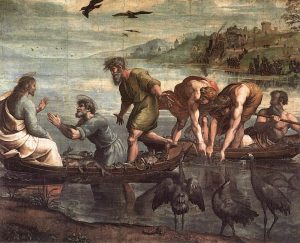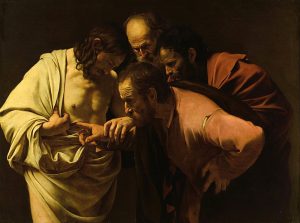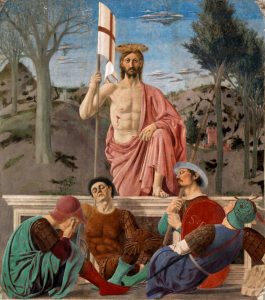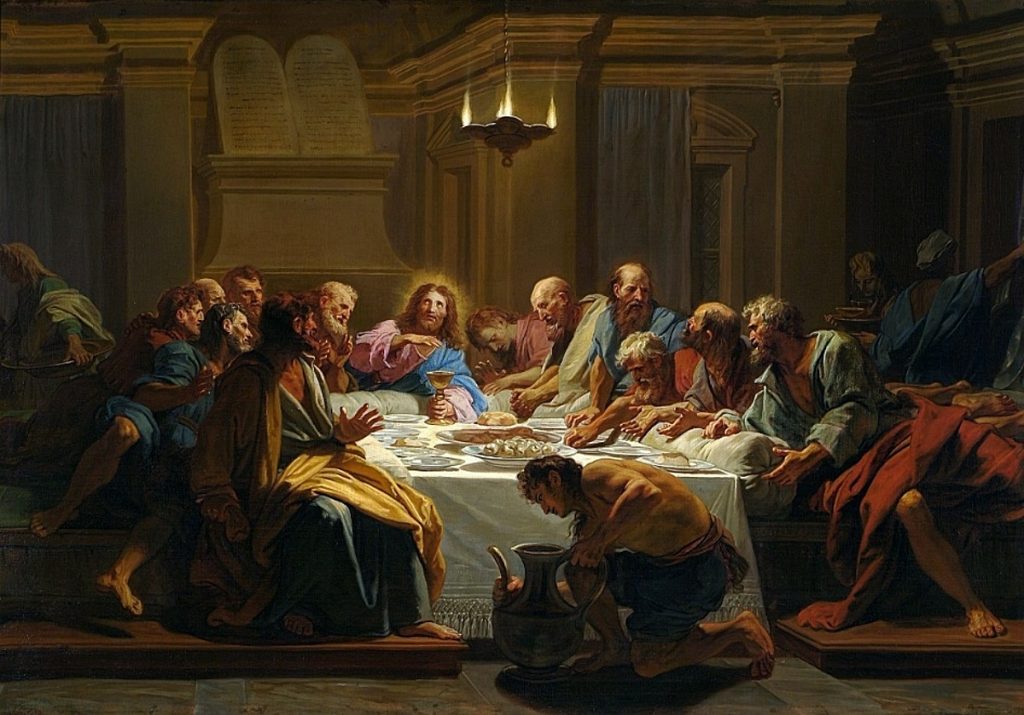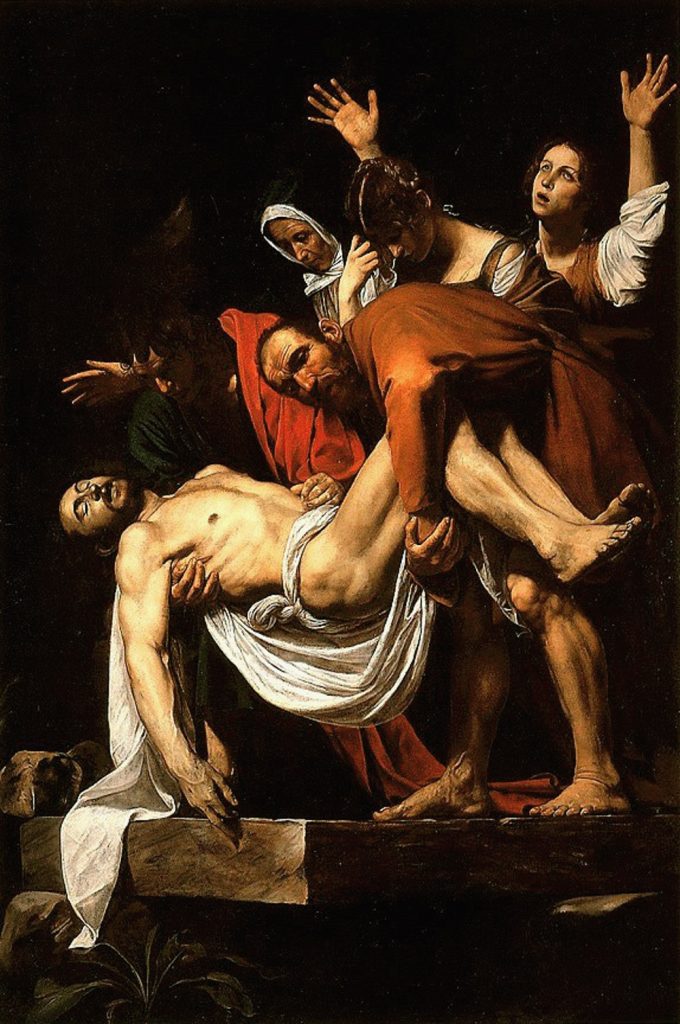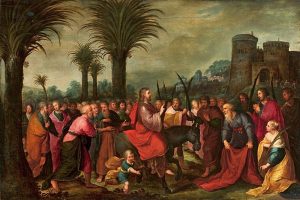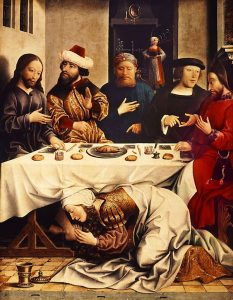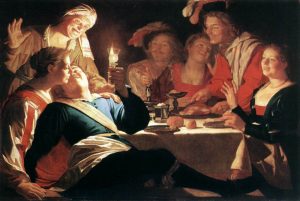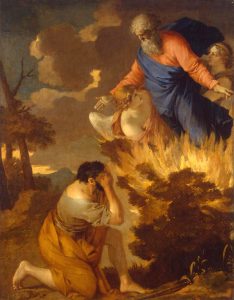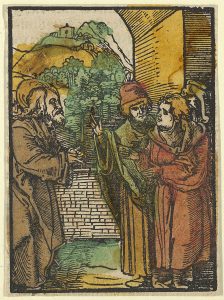em>Illuminations on the Lectionary readings for May 11, 2025 (Easter 4C)
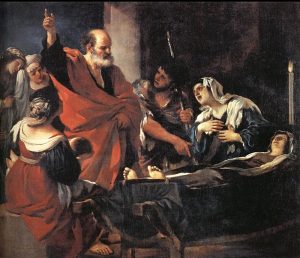
St. Peter Reviving Tabitha (1618), oil painting on canvas by Giovanni Francesco Barbieri, “Il Guercino” (1591-1666). Galleria Palatina, Palazzo Pitti, Florence. Click image to enlarge.)
First Reading: Acts 9:36-43
Even in the midst of difficulty, we always have hope in God. This encouraging theme resonates through today’s readings, reminding us that God protects us, feeds us, washes away our tears, and offers us life. Our first reading from the Acts of the Apostles tells of the sudden death of Tabitha. This loss must have hit the infant church hard, as this hard-working disciple was known for her acts of charity, and she made clothes for the group. Peter, filled with the Spirit, brings her back to life with a prayer and a command, just as Jesus had done with Lazarus and others.
Psalm: Psalm 23
The beloved 23rd Psalm is so familiar that many of us could probably recite it from memory, perhaps in the cadences of King James. Sometimes, though, too much familiarity can rob us of the beauty of rediscovering the details. Try reading it this week with fresh eyes and mind, taking it slowly, one verse at a time. Breathe deeply and visualize yourself and your loved ones in each line; walking with God through the green pastures, past the still waters and through the dark valley, then sitting down at God’s table for an unforgettable banquet. God loves us all, always. What could be more comforting than that?
Second Reading: Revelation 7:9-17
We remain through Eastertide in the strange land of Revelation, a book that was written in symbolic language to inspire and reassure the people of a persecuted first century church. We don’t look to it for prophecy for modern times, or at least we shouldn’t. But when we read it as metaphor and tradition, we can find hope for all ages in its verses. In this passage we see a multitude worshiping the Lamb. This is not an exclusive gathering of insiders but a worldwide crowd incorporating all colors, languages and nations. Everyone is included! The closing verses continue offering reassurance and hope: The Lamb will be our good shepherd, guiding us beside the still waters, protecting us from danger and delivering us from hunger and thirst.
Gospel: John 10:22-30
John’s Gospel, like all four Gospels, reflects life in the early church during a time of conflict between early Christians and the Jewish community in which they had been included. This passage reveals that conflict in John’s interpretation of Jesus’ critical response to Jewish leaders. John places this confrontation symbolically in the Temple’s portico of Solomon, the place where kingly judgments were traditionally rendered. In our modern understanding, we can look past the harsh words to see love and hope for all nations in Jesus, the Good Shepherd, whose works show that he will protect his flock and care for his sheep, Christ’s body on Earth.

